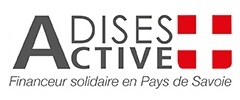Twenty million Europeans lack safe sanitation
The United Nations have declared 2008 as the International Year of Sanitation to bring sanitation on top of the agenda of policy makers worldwide.
21.01.2008 |Chantal van den Bossche

 Therefore WECF organizes together with five other organizations in the field of sanitation a High-Level Policy Dialogue on “EU Sanitation Policies and Practices in the 2008 International Year of Sanitation” in the Deutscher Caritasverband in Brussels, Belgium, on January 29, 2008. More information can be found in the press release or in the event flyer.
Therefore WECF organizes together with five other organizations in the field of sanitation a High-Level Policy Dialogue on “EU Sanitation Policies and Practices in the 2008 International Year of Sanitation” in the Deutscher Caritasverband in Brussels, Belgium, on January 29, 2008. More information can be found in the press release or in the event flyer.
Sanitation, hygiene and water pollution are a challenge worldwide and in the European Union. 2.6 billion people - over 41% of the global population - do not have access to safe sanitation, including some 20 million people within the European Union, according to estimates of the Global Water Partnership. They depend on unsafe sanitation such as pit latrines, soak aways and drains. This has catastrophic results; high morbidity, especially among children, and a high number of people affected by water related diseases and water pollution.
To promote the coming International Year of Sanitation, Women in Europe for a Common Future (WECF), in co-operation with the Global Water Partnership, the European Water Partnership (EWP), Coalition Clean Baltic, KIWA Research and Sealskin Coram, organizes a High-Level Policy Event to take place on 29 January in Brussels.
Providing safe sanitation is one of the most important goals for WECF. “Women in Europe for a Common” mobilizes women to find affordable solutions to the environmental health problems in their communities, and encourages women to participate in decision-making. In the Rumanian village of Garla Mare women had to deal with nitrates, human faecal bacteria and pesticides in their water wells and they decided to take action.
They created a women’s organisation – Women for a Clean Future - dedicated to creating a healthy environment. They built dry ecological school toilets and hand wash basins, and they cleaned the water wells. In the village of Sulitsa, in Bulgaria, the women of the cultural club wished to have sustainable and safe sanitation facilities. In those communities women take the responsibility to improve the hygiene and the health of their families. Women can be a powerful catalyst for changes.
But much more is needed. WECF believes that it should be right for each EU citizen to have access to safe and affordable sanitation. So far 29 million people in the European Union do not have that right. It should be a priority of the European Union to first help those who are most needing and to make safe and affordable sanitation for all citizens in the European Union a key priority. So that by 2015, all 20 million people currently using unsafe latrines, have been provided with safer resolutions.


































